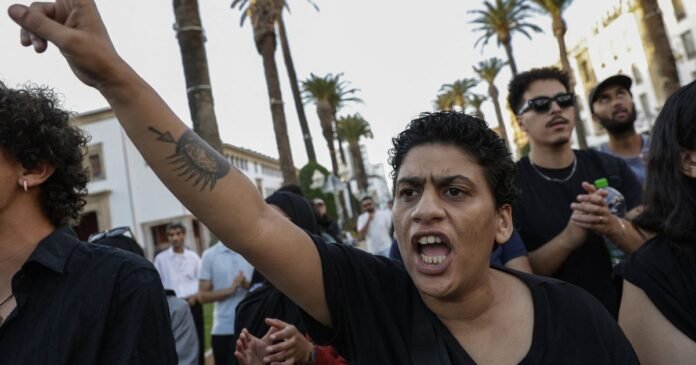Morocco is in the process of constructing what is set to become the largest football stadium globally, sparking protests led by the Gen Z community against perceived government greed. The new stadium, with a capacity of 115, is part of a $5 billion project that has triggered nightly demonstrations since September 27.
Dubbed Gen Z 212, in reference to Morocco’s international dialing code, the movement has been leveraging social media platforms like Discord, TikTok, and Instagram to coordinate protests and outline demands for improved healthcare, free education, and higher wages.
The country’s youthful population, mainly born between 1995 and 2010, spearheaded the demonstrations, which are commonly known as the Gen Z protests. Inspired by similar youth-led movements in Nepal, the protesters seek to address issues like limited opportunities, corruption, and nepotism.
The peaceful protests organized by Gen Z 212 have spread to ten cities, including Rabat, Tangiers, and Casablanca. Protesters are advocating for prioritizing basic infrastructure and social welfare over lavish sporting investments, chanting slogans such as “No World Cup, health comes first” and “We want hospitals, not football stadiums.”
Demanding the government’s resignation, the movement emphasizes the fundamental rights to health, education, and a decent standard of living. However, the protests have faced harsh responses from authorities, leading to mass arrests and violent confrontations, resulting in casualties among demonstrators.
Gen Z 212, originating on Discord in mid-September, quickly gained traction, growing from 3,000 members to over 130,000 within a week. Discord, a platform commonly associated with gaming, has played a crucial role in facilitating youth-led movements worldwide.
Notably, Morocco’s Gen Z 212 movement operates without a formal structure or political affiliation, according to statements from protesters. The anonymous organizers have refrained from engaging in dialogue with government officials, opting to remain unidentified.
The group’s anonymity poses a challenge for establishing communication with authorities who have called for discussions to address the protesters’ grievances.

